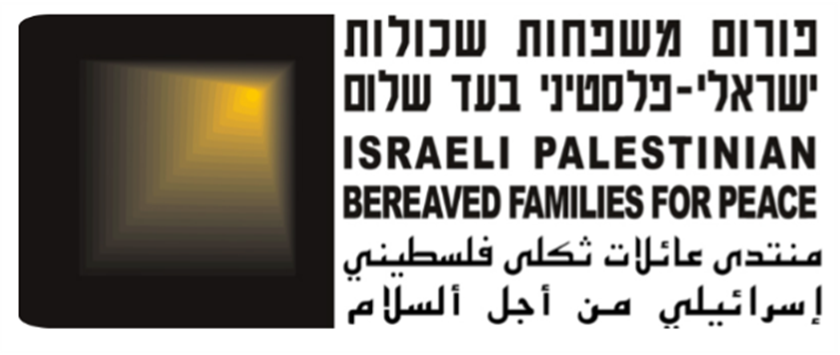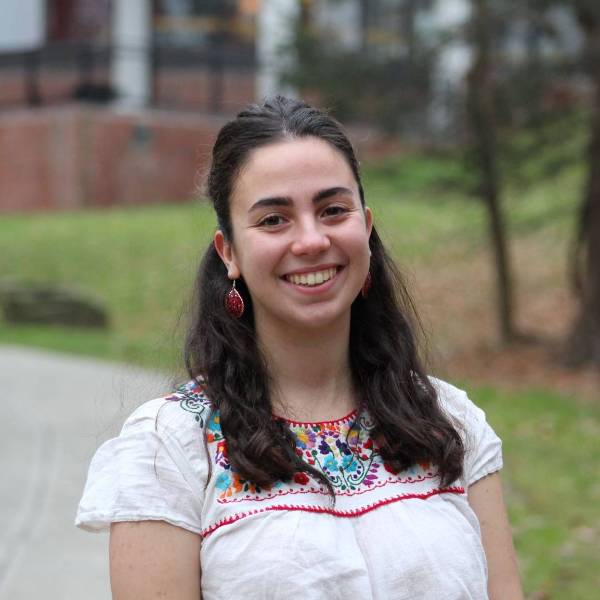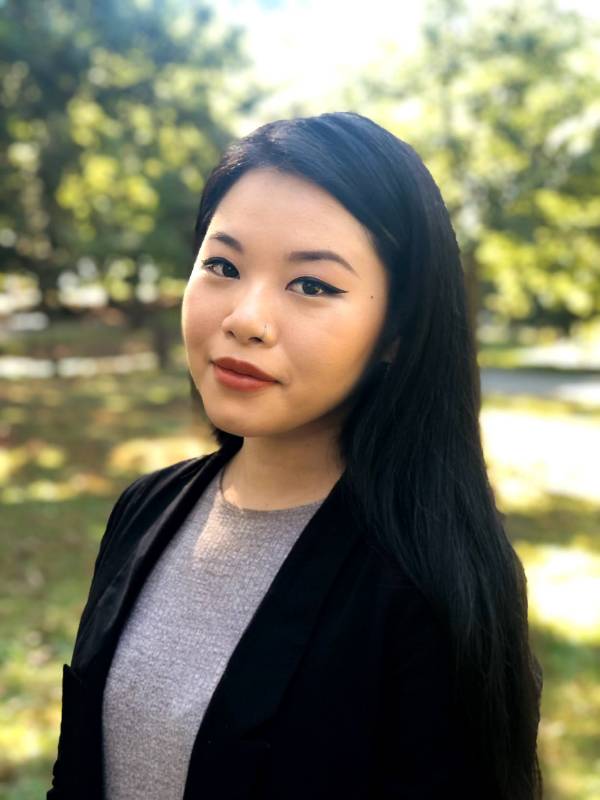Published on April 30, 2021
From the Co-Directors
In January of this year, outgoing U.S. Secretary of State Mike Pompeo, in one of his last official acts, released a statementnaming China’s policies against its Uyghur minority in Xinjiang Province a genocide. In its 2020 Human Rights Report, the State Department, now directed by Secretary of State Anthony Blinken, confirmed this position. Releasing the report, Secretary Blinken was scathing in his denunciation of genocide and crimes against humanity that China continues to commit in Xinjiang Province.
Especially when made by great powers, genocide determinations carry weight, and rightly so. Inevitably, they are acts of foreign policy that will have powerful effects in international relations – some desired, others not. A U.S. genocide determination for Xinjiang will certainly not contribute to any improvement of an already tense relationship between Washington and Beijing, and so it is both right and wise to debate publicly whether the expected costs of the determination are justified. As we do so, though, we should take care to discern the difference between reasonable disagreement and simple mistakes, whether in fact, in judgment, or both.
On the 8th of this month, Michael O’Hanlon opined in the pages of the Washington Post that “The U.S. has very Little to Gain by Overdemonizing China.” The errors in both fact and judgment reflected in his editorial are worth consideration.
Designating the Chinese government as perpetrating genocide against its Uyghur minority in Xinjiang Province, O’Hanlon writes, is part of a broader get-tough policy toward China that risks further damage to the already-strained U.S.-China relationship without tangible rewards, and furthers a trend toward “dangerous groupthink” in America’s foreign policy. O’Hanlon reproduces the text of the 1948 Genocide Convention and appeals to the authority of both Raphael Lemkin and Samantha Power to argue that, while admittedly horrendous, China’s Xinjiang policy does not rise to meet either the legal or the historical definitions of genocide, which “historically has described the killing of hundreds of thousands or millions of individuals.”
O’Hanlon is a distinguished and experienced expert in international relations, a fact that makes this basic misunderstanding of the text and implications of the Convention all the more disturbing, baffling, and potentially harmful. Whether in the strict terms of the Convention or the broader understanding that has developed in the wake of multiple human tragedies, the crime of genocide does not and should not be limited to acts of mass killing.
Indeed, China’s attacks on the Uyghurs read like a checklist of the remaining four prohibited acts that the Convention enumerates: causing serious bodily or mental harm to members of the group; deliberately inflicting on them conditions of life calculated to bring about its physical destruction in whole or in part; imposing measures intended to prevent births, and forcibly transferring children from the group to another group. As documented in last month’s https://newlinesinstitute.org/uyghurs/the-uyghur-genocide-an-examination-of-chinas-breaches-of-the-1948-genocide-convention/ by the independent Newlines Institute, China is actively expanding its policies of forced detention of hundreds of thousands of Uyghurs in a massive regional network of camps, forced “re-education” in order to erase Uyghur religious and cultural identity, forced sterilization of Uyghur women, and forced extraction of children from Uyghur families. If these policies do not satisfy both the strict requirements of the Convention and the “familiar” understanding of how states eliminate unwanted minorities, it’s hard to see what could.
The idea that “real” genocide only occurs when mass killing is added to this terrible list is a basic misunderstanding. But it also raises an important question that all of us in the prevention community need to take seriously. A genocide determination by the United States is, rightly, a high-visibility and potentially high-impact act of aggressive diplomacy, with important and often hard-to-predict knock-on effects. Perpetrators of genocide are not limited to weak, fragile, or failing states. In the case of China, O’Hanlon is right to take into consideration the likely effects of the Blinken State Department’s support of the existing genocide determination for Xinjiang. If a U.S. genocide determination matters, then it would be irresponsible not to.
But the worry that a “demonizing” and incendiary genocide determination is all cost and no benefit is also a mistake. O’Hanlon is surely right that we should be cautious in allowing U.S.-China relations to deteriorate further. But calling China out for its violation of the terms of the Convention – of which it is a signatory – is hardly equivalent to reality-blind moral grandstanding. It is – or should be - smart international politics. Insisting that genocide is not a tolerable domestic policy for any state actor affirms our commitment to a damaged but still powerful international normative order, and both reaffirms and leverages soft power as a way to hold states accountable. Failing to do so sends the Chinese government valuable information regarding the costs of its actions.
As established in U.S. law in 2019 (PL 115-441), atrocity prevention is a core U.S. national interest. Far from “overdemonizing,” the Blinken State Department’s recent rebuke of China’s ongoing genocide is a much-needed voice in the international chorus demanding that China stop its plan to annihilate its Uyghur minority.
The U.S. determination will act as an important catalyst and support for other governments, international organizations, and a global web of civil society organizations and businesses to work together to end the Uyghur genocide. Together with coordinated diplomatic pressure, a range of targeted sanctions and boycotts, including Chinese products such as cotton clothing produced by Uyghur slave labor as well as the upcoming 2022 Winter Olympic Games, can impose costs on China’s actions. Contacting our elected officials reminds them that their constituents care about this issue. Calling genocide by its rightful name must be a part of this joint effort as well.
- Nadia Rubaii & Max Pensky
Upcoming Events
Joint webinar on Tigray with Raoul Wallenberg Centre
May 13, 2021 - 10:00am to 12 noon EDT
Registration Link: TBA
Newsworthy
New Master of Science in Genocide and Mass Atrocity Prevention (GMAP) Now Accepting Applications
Binghamton University’s Master of Science in Genocide and Mass Atrocity Prevention (GMAP) is accepting applications for its inaugural class in fall 2021. This professional degree prepares graduates to analyze risk factors, formulate strategies, and implement policies and practices to reduce the occurrence, severity, and potential for reoccurrence of genocides and other mass atrocities around the world. With a focus on the application of an atrocity prevention lens, the program educates students to recognize opportunities to engage in upstream (before conflict), midstream (during conflict) and downstream (post-conflict) prevention measures. Through an interdisciplinary approach integrating classroom learning, applied research, engagement with practitioners, and an intensive field placement, the program prepares graduates to be prevention actors at the micro- (individual), meso- (organizational), and macro- (societal) levels.
A key feature of Binghamton’s MS in GMAP is a funded 4- to 6-month field placement, which will normally be completed during the second year of full-time study and will provide an opportunity for students to work alongside practitioners, to apply the knowledge, skills and abilities from their coursework, and then to reflect on the experience. Another component is the Mechanisms of Atrocity Prevention research project, in which students will work alongside the staff of the Institute for Genocide and Mass Atrocity Prevention (I-GMAP) on practical research targeted to governmental and civil society clients.
The program seeks applications from a diverse group of students from around the world. Funding may be available for highly qualified applicants with financial need. Eligibility will be determined upon application to the program.
Learn more about the program and apply now!
"More than memories: Exhibition features art that honors victims of historical violence while inspiring future action"
The Winnipeg Free Press published a lengthy story about Artivism, an exhibition at the Canadian Museum of Human Rights in Winnipeg, Canada. Kerry Whigham, assistant professor of genocide and mass atrocity prevention, co-curated the exhibition, which debuted during the 2019 Venice Art Biennale. This exhibition explores the connection between art and genocide prevention by highlighting the work of six artists and art collectives in six post-atrocity countries: Argentina, Bosnia and Herzegovina, Canada, Indonesia, Iraq, and South Africa. The exhibition will run from April 30, 2021 to January 16, 2022. More information can be found at artivismexhibition.com.
Dr. Darcie DeAngelo - Assistant Professor of Anthropology!
We are very excited to announce that one of our 2020-2021 Charles E. Scheidt Postdoctoral Fellows Darcie DeAngelo will be assuming the role of assistant professor of Anthropology at the University of Oklahoma in August 2021. Darcie is a medical anthropologist with training in sensory ethnography. In addition to her work with I-GMAP, Darcie is also a Mansfield-Luce Asia Scholar and, as we announced in our last newsletter, will also be one of the Wilson Center China Fellows for 2021-2022. We are very proud of her accomplishments and look forward to adding another academic to our growing rank of atrocity prevention-focused faculty around the world.
Past Events
Stories of Loss and Reconciliation

The pandemic caused by the novel coronavirus upended the lives of so many around the world. It also disrupted the human-to-human connections that we strongly believe develop from in-person interactions. Notwithstanding the challenges of time and distance, we experimented with transforming our Visiting Practitioner program into a virtual week of conversations and connections.
From March 29 to April 2, we hosted a full week of events for our series with the Parents Circle - Families Forum (PCFF) entitled, “Stories of Loss and Reconciliation from the Israeli-Palestinian Conflict.” Although we gathered via Zoom for eight events, we created a sense of community and renewed determination to build peace through stories from the heart. The work of the PCFF is based on the power of parallel narratives as a tool for understanding the “other.” As one of the bereaved family members said, “not knowing creates fear, which creates hatred, which creates violence.”
Israeli Palestinian Bereaved Families For Peace - the Parents Circle Families Forum (PCFF) - is a joint Israeli-Palestinian nonprofit organization of over 600 families, all of whom have lost an immediate family member to the ongoing conflict. The work of PCFF is grounded in an understanding that the process of reconciliation between nations is a prerequisite to achieving a sustainable peace.
In all of our events, our guests not only shared stories of the unspeakable pain of loss, but through their words called us all to action. “We demand that you be pro-peace, that you get involved, don't stand aside.” They spoke about how difficult the bumpy road to reconciliation is, but that we must commit ourselves to believing that a better world is possible and that standing side-by-side we can end violence and build peaceful communities.
Many of our participants expressed that the key takeaway from this week of stories was in recognizing the immense power we have as individuals and communities when we work together. This is extremely important and relevant to other conflicts around the world. We must overcome the narratives of institutions and instead we must focus on the stories of people. We must learn about the "other" in order to live in peace.
We believe a fitting sentiment for the week is represented by the poem written by
the late Mahmoud Darwish and recited to us by Bassam, one of the bereaved fathers:
As you prepare your breakfast, think of others
(do not forget the pigeon’s food).
As you conduct your wars, think of others
(do not forget those who seek peace).
As you pay your water bill, think of others
(those who are nursed by clouds).
As you return home, to your home, think of others
(do not forget the people of the camps).
As you sleep and count the stars, think of others
(those who have nowhere to sleep).
As you liberate yourself in metaphor, think of others
(those who have lost the right to speak).
As you think of others far away, think of yourself
(say: “If only I were a candle in the dark”).
Women of Color Leaders in Atrocity Prevention
On April 9, we gathered virtually with Francia Márquez, an internationally recognized Afro-Colombian environmental and racial justice leader and Miranda Sheffield, a community scholar and organized from Pomona, California, to discuss centering women of color in the work of atrocity prevention. We spoke with Miranda and Francia about their visions for what is the role of women of color in electoral politics as part of atrocity prevention, the influence that the U.S. Vice President Kamala Harris will have on policies related to women of color, meaningful reparations in the American context as well as the transnational solidarity movement of women of color and their communities. Our conversation was moderated by Dr. Jenny Escobar, a Charles E Scheidt postdoctoral fellow in GMAP and Prof. Nadia Rubaii, co-director of I-GMAP.
Our guest speakers spoke about the need for policy that will address the legacy of
harm that the United States government has committed against people of color and its
involvement in Latin America. They spoke about the necessity of growing a solidarity
economy to combat the root causes of conflict. A key to a new future will be to see
ourselves as a collective family, standing together, pushing for policies that will
help those who are impoverished and to enact global environmental protections, according
to our guests. We also engaged in a dialogue with the audience through questions related
to what we can do as individuals to get involved. A way forward, as suggested by Miranda,
is to get comfortable with being uncomfortable and realize that our struggle is connected
to the struggles of others worldwide.
A student from BU Pipedream attended the webinar and wrote a story for the student-led campus newspaper.
Risks and Realities of Mass Atrocities facing Brazil’s Indigenous Peoples
On April 16, we co-hosted a webinar with the Cardozo Law Institute in Holocaust and Human Rights and featured four prominent atrocity prevention actors from civil society and government in Brazil. On the panel were two Indigenous leaders, Tónico Benites (Guarani-Kaiowá) and Marcia Wayna Kambeba (Omágua / Kambeba), from separate territories, but both spoke about the pervasive and ongoing mass atrocity crimes perpetrated by Brazil. Professor Fernanda Bragato and federal prosecutor Júlio José Araújo, Jr. rounded out the discussion with perspectives from the legal challenges and advances through the judiciary.
The Indigenous Peoples of Brazil face continued destruction of land and waters in the name of economic development. This is not a new phenomenon in the region, these people have faced epidemics, exploitation, violence, and slavery for centuries. As Marcia told us, "in the eyes of capitalism, there is richness in the land and in the forest. They see us as obstacles to progress. We face violence not only in our villages but as we move to the cities." She reiterated the notion that violence against the environment is violence against Indigenous Peoples, and that they have the right to live in their lands and continue to care for the land they consider to be sacred. The atrocity risks are prevalent across the country because of two main reasons, the strong economic interests that are well represented in politics and the inflamed rhetoric against Indigenous People that paint them as obstacles to development and as primitive people who need to be assimilated (eliminated). This destruction of their lives is not limited to the land, our speakers told us about the forced and collective rape of women and murder of their children. "When one individual is killed, it harms the whole collective."
Most recently, this destruction has manifested in disproportionate effects of the covid-19 pandemic on the Indigenous Peoples in Brazil. The state has used the propagation of viruses, in the past, to eliminate indigenous people. And now we are witnessing a repeat of this history. It is up to the state of Brazil to protect the indigenous people and the territories. According to Tónico, the state is intentionally allowing the violence and spread of the virus to happen.
Education and mental health is another point of contention. Marcia spoke about the struggle in the 21st century for the right to live with the perspective of the original peoples and their knowledge. She explained how they must preserve the right to speak and learn their native languages, as she considers this act to be a sign of resistance. Our Indigenous speakers told us about the mental health struggles and the damage inflicted on these communities. "We feel fear and tension in face of these crises." Marcia further elaborates and describes "memory-cide" or the extinction of our memory. "I am Kambeba, not Indian. I do not need to be leveled."
Law has historically been, and continues to be, used against Indigenous Peoples and to violate their rights systematically and the situation has taken a nosedive in the last year. Attempts at destruction of indigenous peoples has been ongoing. Since the adoption of the current constitution, there has been an improvement in the relationship between the State and Indigenous People. However, the politics of assimilation and disrespect has never changed. Professor Bragata explained that we have a clear policy of extermination. We can see that the pandemic has let the State allow Indigenous People to die - if not from coronavirus, but also from famine. Julio Araújo, explained that the constitution respects the autonomy of Indigenous Peoples, however over the past 30 years we have struggled with implementing these rights. Some regions have done better with demarcation of lands than others. He outlined that there is a clear intent to destroy these rights and go back to the military regime period when indigenous people were considered incapable of exercising their rights. Additionally, the Bolsonaro government, in an unprecedented attempt in Brazil's democracy, is weakening the supervision mechanisms of the federal prosecutor's ministry. In practical terms, it is a free pass for private actors to do what they want in the territories. They have seen an increase in prosecutions of people who are trying to stop the perpetrators of mining and deforestation and agribusiness. Reparations for this harm have to start with assurance of the right to the territory.
Not all is lost, there is resistance to the government and their extraction priorities in indigenous lands. In addition to the successes in territorial demarcation, as provided by the Brazilian Constitution, Indigenous Peoples also have voices in the government, federal senators, and other elected representatives. Marcia insisted that it is really important that Indigenous Peoples occupy these spaces of power. "We need to bring bodies, people who have not entered these spaces before." Furthermore, they are trying to work through the courts and through their organizational networks of certain Indigenous groups. This type of resistance is present in the arts, poetry, gathering and growing food, in entering and changing institutions. For example, the Guaraní people are in several countries in Latin America and have a network to call upon for action. They are actively involved in a debate about genocide in the Americas, with people from Colombia, Argentina, and Brazil.
The Indigenous Peoples in lands within Brazil need the international community to put pressure on the Brazilian government and hold the Bolsonaro regime accountable for its crimes. Additionally, our guests called for researchers to pay attention to what is happening in Brazil. The majority of the people in Brazil do not recognize the legitimacy of this issue, so outside support is needed, according to our speakers. One suggestion is to continue bringing Indigenous Peoples to the debates and to the table. Another is to protect the civilians. "Our struggle is to survive, not kill. It is a war, we are facing armed groups," described Tónico. "Our central struggle is to have our lands back so we can live there in peace."
Marcia closed out our conversation by reciting one of her beautiful poems in Portuguese (read the English translation).
Art, Memory, and Politics Colloquium
Kerry Whigham, assistant professor of genocide and mass atrocity prevention, participated on a panel as part of the Art, Memory, and Politics Colloquium in support of the ESMA Museum and Site of Memory's candidacy to the UNESCO World Heritage list. The event hosted by NYU Buenos Aires was held virtually on April 21.
What's Happening with GMAP Students and Alumni
Three Bloom Family Summer Internship in GMAP Awardees
 |
 |
|
|
Alum Profile: Linda Zheng

Previously, Linda has worked on communications at the Foundation for the Preservation of Wildlife and Cultural Assets (FPWC), an environmental organization in Armenia advocating for sustainability and economic development in the South Caucasus. Linda also worked at the Post-Conflict Research Center (PCRC), a peacebuilding institution in Bosnia-Herzegovina, where she researched the Srebrenica Genocide and provided communications support for commemoration of the 25th Anniversary of the Genocide. Most recently, Linda assisted Genocide Watch with research and communications, where she published country reports and genocide alerts for countries in Eastern Europe and East Asia.
Do you want to receive these newsletters directly to your inbox?
If you would like to subscribe to our newsletter, please complete this short form.
Managing Editor: Stephen Capobianco
Newsletter Design: Yongabi Ngoh

 I-GMAP is grateful for the generous support provided by the Charles E. Scheidt Family
Foundation.
I-GMAP is grateful for the generous support provided by the Charles E. Scheidt Family
Foundation.